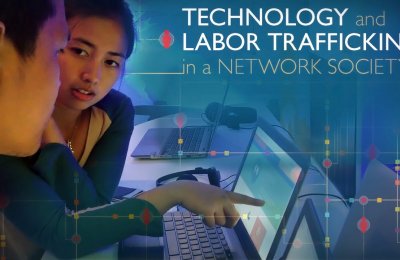For one-quarter of computer owners, their current PC may be their last.
Twenty-five percent of computer owners say they may not replace their PC when their current machine becomes unusable, signaling a possible trend of consumers becoming PC-less because they switch to a tablet or a similar device, according to a national survey conducted by USC Annenberg's Center for the Digital Future in collaboration with market research and strategy firm Bovitz, Inc.
“We are seeing a major change in how a large percentage of Americans view their computing needs,” said Jeffrey I. Cole, director of the Center for the Digital Future at the USC Annenberg School for Communication and Journalism.
“In only a few years, the explosive growth of tablet adoption has created significant shifts in how, when, and why Americans go online,” Cole said. “Clearly, more computer users are ready to make the switch to a PC-less lifestyle by moving to tablets and other devices.”
Survey participants were asked: “Many people are questioning whether they need a personal computer given all the things they can do on their smartphones and tablets. When your current personal computer becomes unusable, how likely are you to replace it with another personal computer?” In response, 4 percent of users said they definitely will not replace their personal computer with another PC, 6 percent said they probably will not, and 15 percent said they might or might not replace it.
The findings on PC use [see a graphic here] are the first results reported from the center’s upcoming annual report on the impact of the Internet in America, which will be released in February 2013.
Mobility cited as a major reason for change
Why will some Americans become PC-less and switch to a tablet or similar handheld device? More than half of PC owners who intend to switch cite a tablet’s mobility as a reason they will change (54 percent). Thirty-eight percent said that with a tablet they “can basically do everything I did on a personal computer,” and 34 percent said a tablet was easier to use than a PC.
And although tablet manufacturers hype style and trendiness, only 15 percent of users said they would switch to a tablet because it is “cooler or stylish.”
With multiple responses possible, other reasons cited for adopting a tablet-only lifestyle are: comfort (26 percent), cheaper (22 percent), desire for apps (19 percent), greater functionality (19 percent), and “PCs take too long to boot up” (15 percent).
Equal percentages of both genders are likely to give up their PC for a tablet: 50 percent for men, and 50 percent for women.
Why continue using a PC?
However, three-quarters of computer users said that they will replace their current computer with another PC when their current machine becomes unusable. When those users were asked why they would not switch to a table or similar device, 66 percent said a PC is more comfortable to use than a tablet. Fifty-eight percent said they need a screen larger than what is available on other devices, and 56 percent said a PC is better for complex tasks, or they need a keyboard or mouse.
Other reasons to continue to use a PC instead of a tablet or similar device include the need for software available on PCs (43 percent), the need to regularly back-up data (28 percent), and worries about the security of other devices (25 percent).
Is the PC dead?
These changes, as well as even lower prices for tablets that industry analysts predict for next year, will lead to an even larger shift toward tablet use, Cole said. In the center’s 2011 study, “America at the Digital Turning Point,” Cole predicted that over the next three years, the tablet will become the primary tool for personal computing needs -- not just for a quarter of Americans, but for almost all computer users.
“Use of a desktop PC may well dwindle to only 4-6 percent of computer users -- computer-assisted designers, heavy-duty number crunchers, full-time writers, and college students while they are in college -- and laptop use will probably decline as well,” Cole said.
“The tablet is an inviting gadget,” said Cole. “The desktop PC is a ‘lean forward’ device -- a tool that sits on a desk and forces users to come to it. The tablet has a ‘lean-back’ allure -- more convenient and accessible than laptops and much more engaging to use. For the vast majority of Americans, the tablet will be the computer of choice by the middle of the decade, while the desktop PC and even laptops fade away.”
However, Cole said the tablet is not yet established as a full-fledged computing tool.
“The tablet has yet to prove its full functionality,” he said. “As more ambitious work on a tablet becomes possible as software choices grow, more users will move to tablets. Until then, we will see growing desire to move to tablet-only computing, but our findings show almost three-quarters of computer users are not yet ready to make the complete change. The industry talks about the tablet taking over, but for now there is still a substantial market for traditional PCs.”
Questions about tablet adoption were included in the center’s Topical Survey, a new supplement to the main Digital Future Project. Conducted in August, the Topical Survey interviewed 989 Internet users from an online consumer panel, covering issues such as privacy, social media usage, use of technology at school, stress with technology, and social norms regarding the presence of technology in social settings. The survey has a margin of error of +/- 3.1%.









